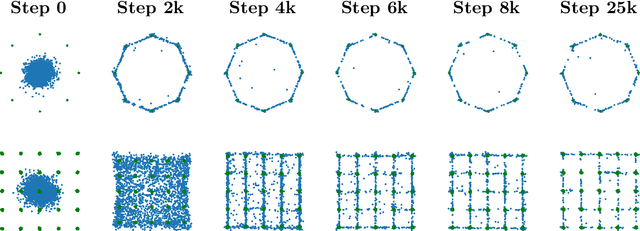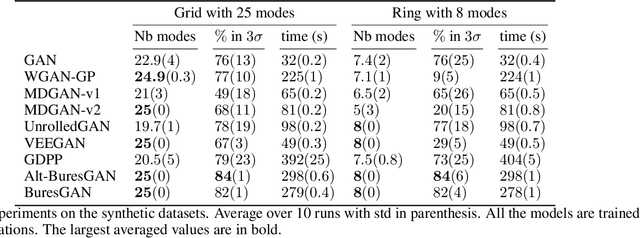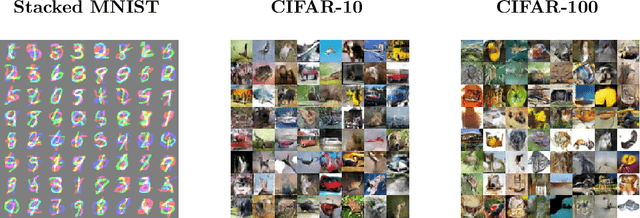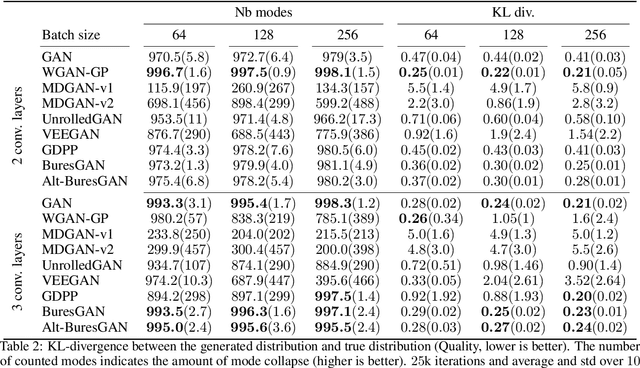The Bures Metric for Taming Mode Collapse in Generative Adversarial Networks
Paper and Code
Jun 16, 2020



Generative Adversarial Networks (GANs) are performant generative methods yielding high-quality samples. However, under certain circumstances, the training of GANs can lead to mode collapse or mode dropping, i.e. the generative models not being able to sample from the entire probability distribution. To address this problem, we use the last layer of the discriminator as a feature map to study the distribution of the real and the fake data. During training, we propose to match the real batch diversity to the fake batch diversity by using the Bures distance between covariance matrices in feature space. The computation of the Bures distance can be conveniently done in either feature space or kernel space in terms of the covariance and kernel matrix respectively. We observe that diversity matching reduces mode collapse substantially and has a positive effect on the sample quality. On the practical side, a very simple training procedure, that does not require additional hyperparameter tuning, is proposed and assessed on several datasets.
 Add to Chrome
Add to Chrome Add to Firefox
Add to Firefox Add to Edge
Add to Edge